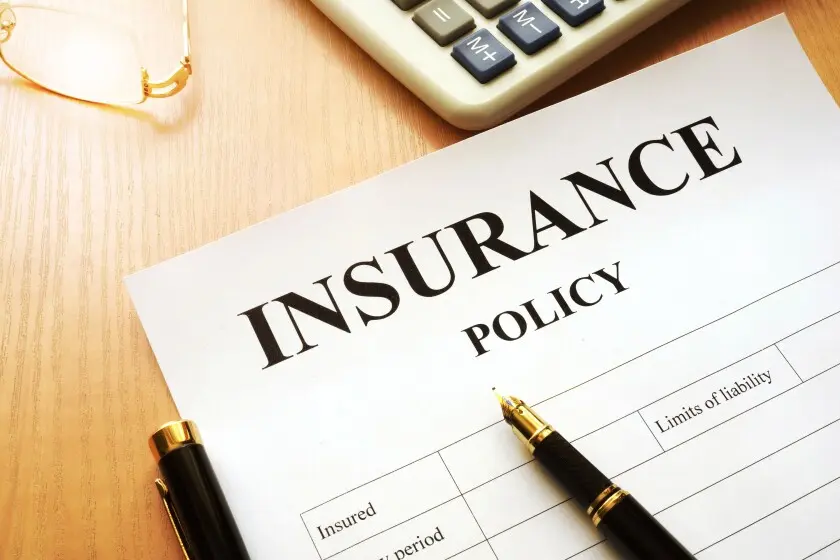
What Is Auto Insurance?
Auto insurance is a contract between you and an insurance company that provides financial protection in the event of a car accident or other vehicle-related incident. It covers the cost of damage to your vehicle, injuries you or others may sustain, and property damage caused by an accident. Auto insurance typically includes several different types of coverage, such as:
- Liability Coverage: Covers damages to others' property and medical expenses if you're at fault in an accident.
- Collision Coverage: Pays for repairs to your own vehicle if it’s damaged in a collision, regardless of fault.
- Comprehensive Coverage: Covers damage to your car from non-collision events like theft, vandalism, or natural disasters.
- Personal Injury Protection (PIP): Pays for medical expenses, lost wages, and other related costs for you and your passengers, regardless of fault.
- Uninsured/Underinsured Motorist Coverage: Protects you if you're involved in an accident with a driver who has insufficient or no insurance.
Auto insurance is required by law in most states, and driving without it can lead to fines, penalties, and even the loss of your driver’s license.
What Is Homeowners Insurance?
Homeowners insurance protects your home and personal property from damage or loss caused by various incidents like fire, theft, or natural disasters. In addition to property protection, homeowners insurance also covers liability for injuries or damages that occur on your property. Key types of coverage under a homeowners policy include:
- Dwelling Coverage: Pays for damage to the physical structure of your home caused by events like fire, storms, or vandalism.
- Personal Property Coverage: Covers the cost of repairing or replacing personal belongings like furniture, electronics, and clothing if they're damaged or stolen.
- Liability Coverage: Protects you if someone is injured on your property or if you or your family members cause damage to someone else’s property.
- Additional Living Expenses (ALE): If your home is damaged and becomes uninhabitable, this coverage pays for living expenses like hotel stays and meals while your home is being repaired.
Homeowners insurance is typically required by mortgage lenders, but even if you own your home outright, it’s a wise decision to carry this type of insurance to protect your investment and personal belongings.
Why You Need Both Auto and Homeowners Insurance
While auto and homeowners insurance are separate policies, together they provide comprehensive protection for your most important assets. Here's why both are necessary:
- Protection for Different Areas of Your LifeAuto insurance covers your vehicle, one of the most expensive items you’ll own, while homeowners insurance covers your home, a central part of your life and your financial security. These policies complement each other by covering different risks, ensuring you're protected no matter where you are—on the road or at home.
- Legal Requirements and Financial SecurityAuto insurance is legally required in most states, and failure to carry it can result in heavy fines and penalties. Homeowners insurance is not legally required, but most lenders will require it when you take out a mortgage. Even without a mortgage, it’s essential for protecting your home from unpredictable events like natural disasters, theft, or accidents. Without proper coverage, the cost of repairing or replacing your property could be financially devastating.
- Peace of MindHaving both auto and homeowners insurance gives you peace of mind, knowing that no matter what happens, you won’t be left with huge financial burdens. Whether you’re in an accident, dealing with a break-in, or recovering from storm damage, having these two types of coverage ensures that you’re not alone in dealing with the aftermath.
- Liability Protection for Home and AutoBoth auto and homeowners insurance provide liability coverage, which is crucial in protecting you from lawsuits if someone gets injured or if you cause damage to another person’s property. For example, if someone slips and falls on your driveway, homeowners insurance would cover their medical bills, while auto insurance would protect you if you accidentally hit someone with your car.
Bundling Auto and Homeowners Insurance: A Smart Choice
Many insurance companies offer discounts if you bundle your auto and homeowners insurance policies together. By purchasing both from the same provider, you can often save money and streamline your coverage. Bundling may also give you access to other benefits, such as enhanced coverage options, one-point contact for claims, and easier policy management.
How Much Do Auto and Homeowners Insurance Cost?
The cost of auto and homeowners insurance varies based on several factors, including:
- Auto Insurance: Your premium will depend on factors like your driving history, the type of car you drive, your age, and where you live. High-risk drivers (such as those with a history of accidents or traffic violations) will typically pay higher premiums. The level of coverage you select (e.g., liability only vs. comprehensive) will also impact the cost.
- Homeowners Insurance: Premiums for homeowners insurance are based on the value of your home, the location of your property, and the level of coverage you choose. Homes in high-risk areas (such as those prone to floods or wildfires) typically have higher insurance premiums. The value of your personal property and any additional coverage options you select will also affect your cost.
On average, U.S. homeowners pay about $1,200 annually for homeowners insurance, while auto insurance premiums average around $1,000 per year. However, these costs can vary significantly depending on your specific circumstances.
How to Choose the Right Coverage for Auto and Homeowners Insurance
When selecting auto and homeowners insurance, here are a few tips to ensure you get the right coverage:
- Evaluate Your Needs: Consider the value of your car, home, and personal property. How much coverage do you need to fully protect your assets? Don’t underestimate the value of comprehensive coverage, especially if you own a new car or a high-value home.
- Compare Providers: Different insurance companies offer varying levels of coverage and premiums. It’s important to shop around and compare quotes from multiple insurers to ensure you’re getting the best deal for the coverage you need.
- Understand Your Deductibles: The deductible is the amount you pay out of pocket before your insurance kicks in. A higher deductible may lower your premium, but make sure it’s an amount you can comfortably afford in case of a claim.
- Check for Discounts: Many insurers offer discounts for things like bundling policies, having a safe driving record, or installing home security systems. Ask about available discounts to help lower your premiums.
- Review Coverage Limits: Make sure your policy limits are high enough to cover the full replacement cost of your property, whether it’s your car or home. Be cautious of underinsurance, which could leave you exposed to significant financial loss.
Conclusion: Protecting What Matters Most
Auto and homeowners insurance are two critical pillars of a strong financial protection strategy. By ensuring that both your vehicle and home are covered, you can navigate life’s risks with greater confidence. Whether you're driving down the road or relaxing at home, knowing that you have the right insurance in place provides essential peace of mind and financial security. Make sure to assess your coverage needs, compare options, and bundle when possible to get the best value for your protection.






